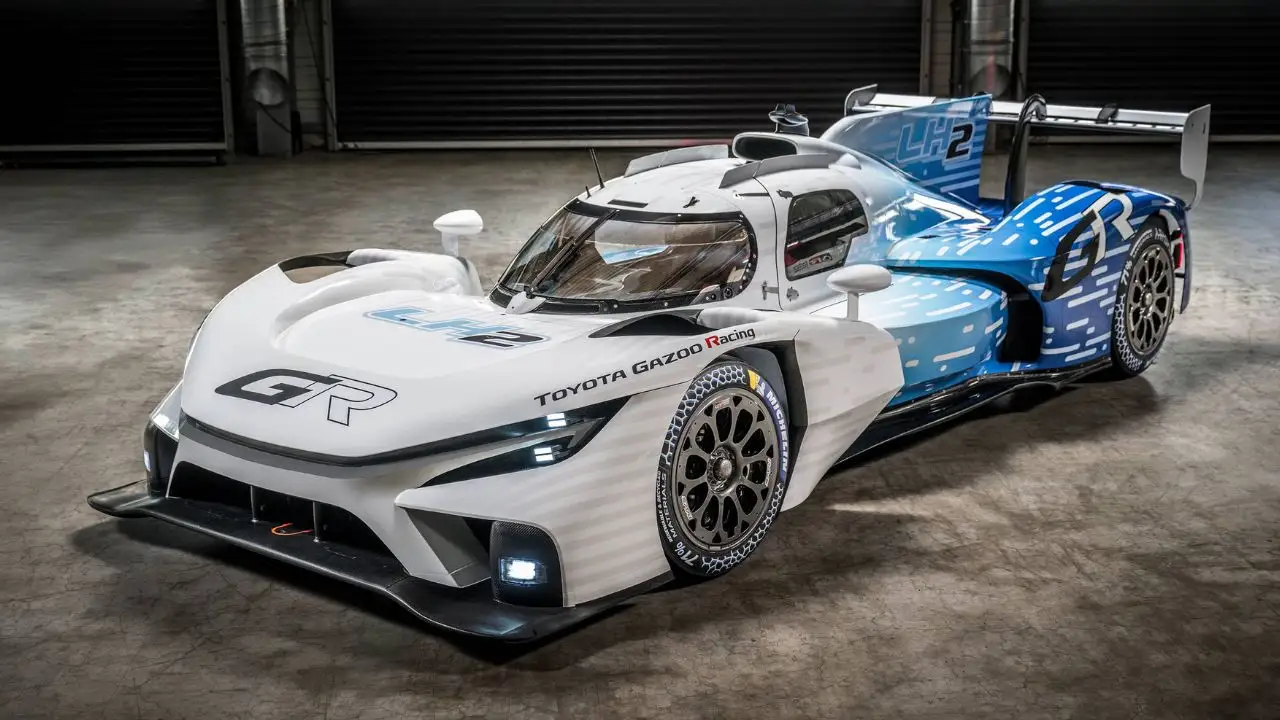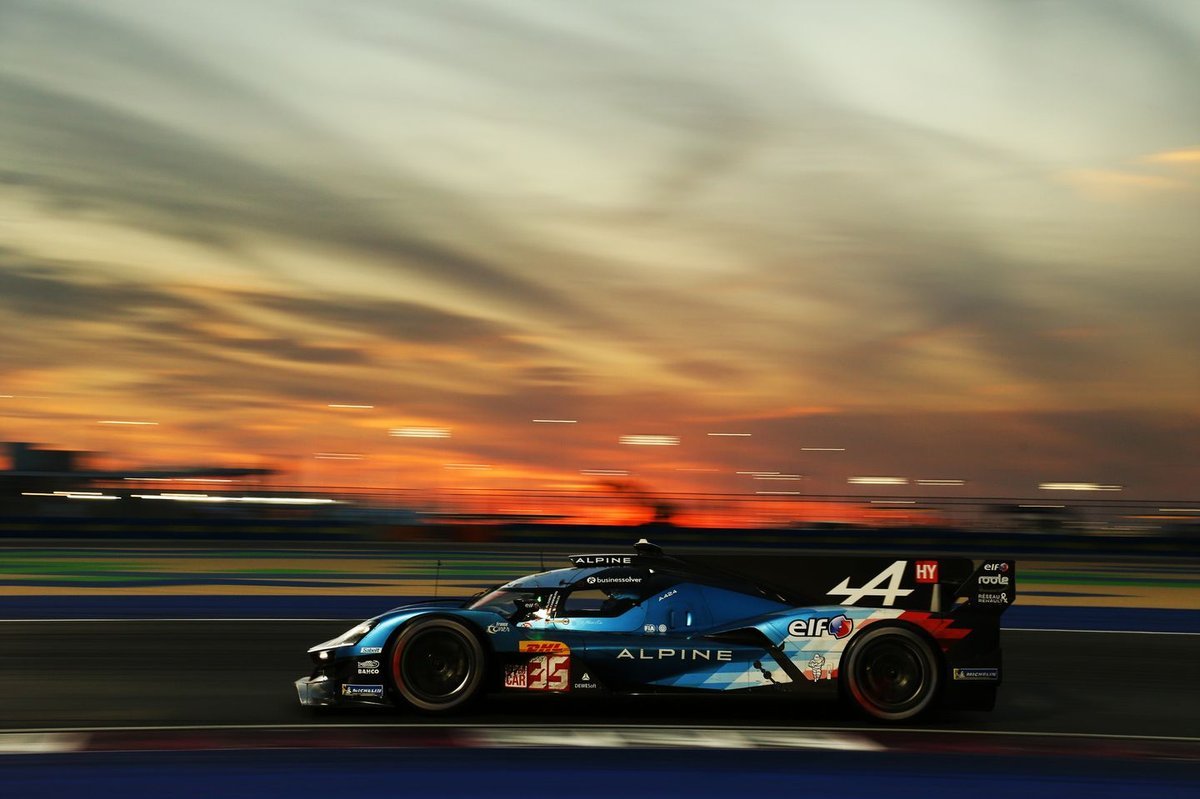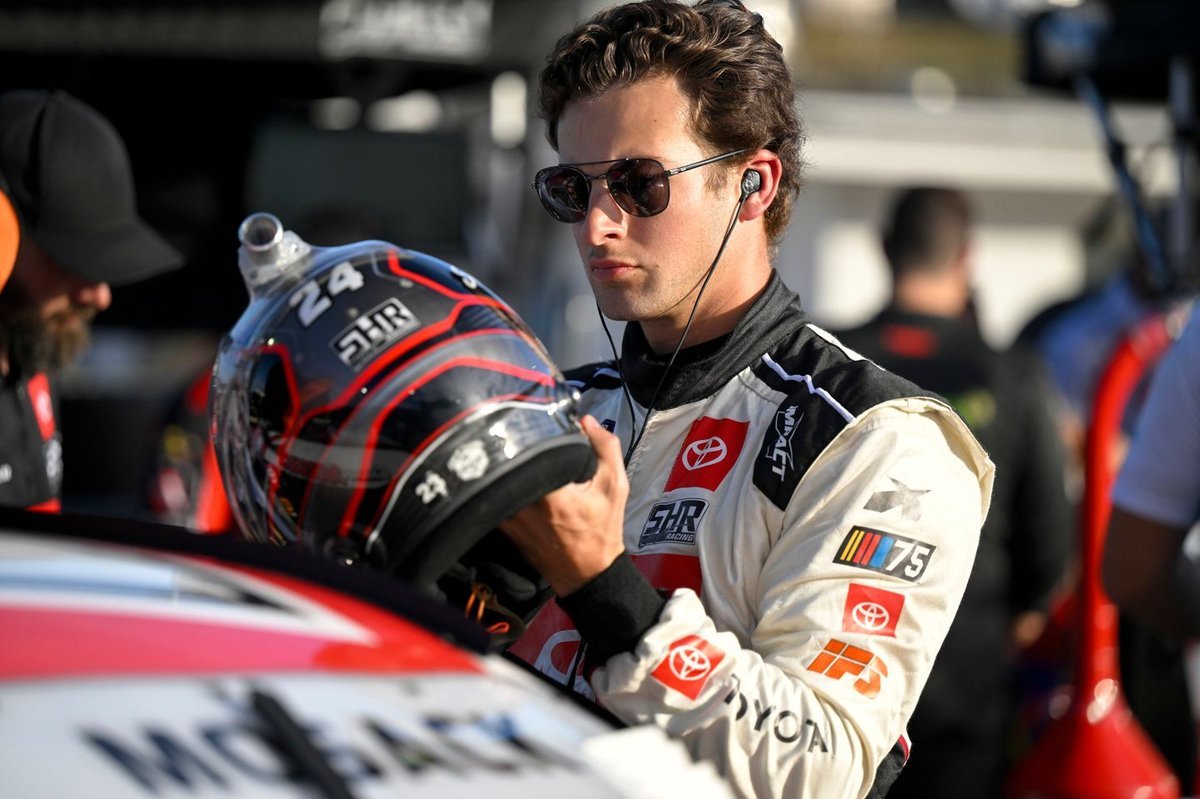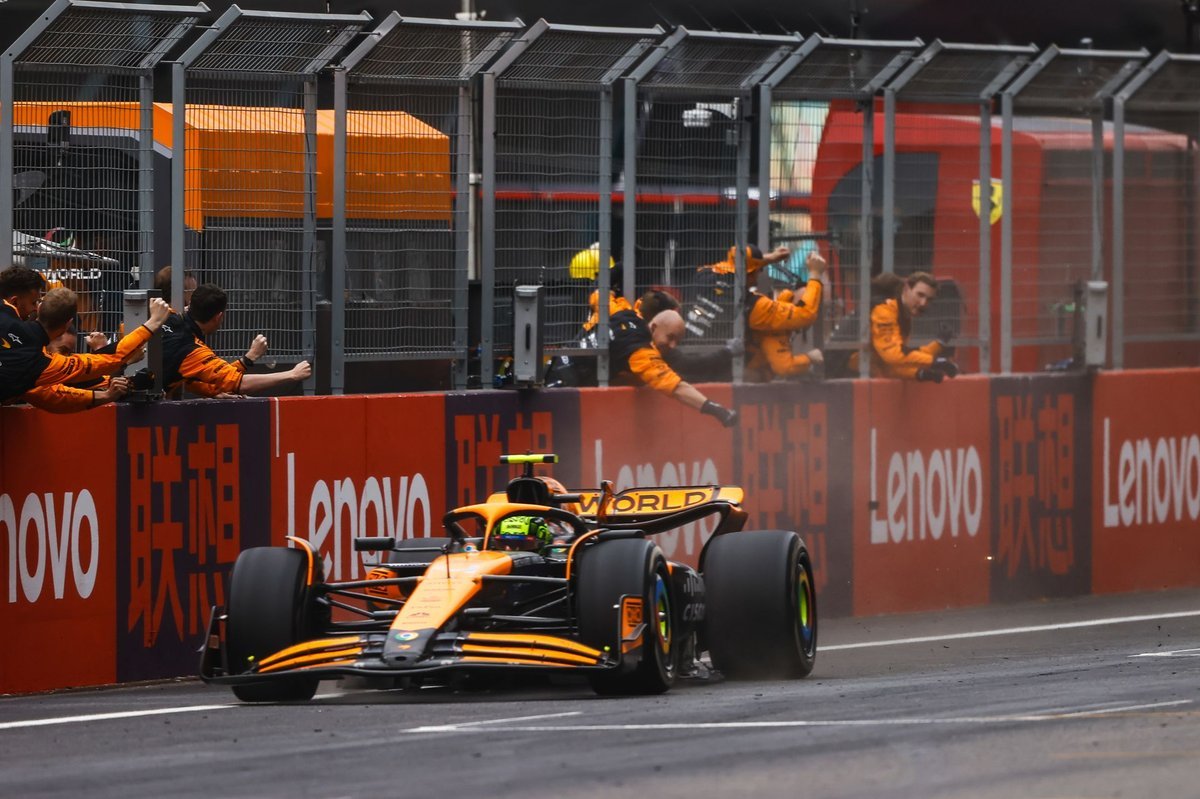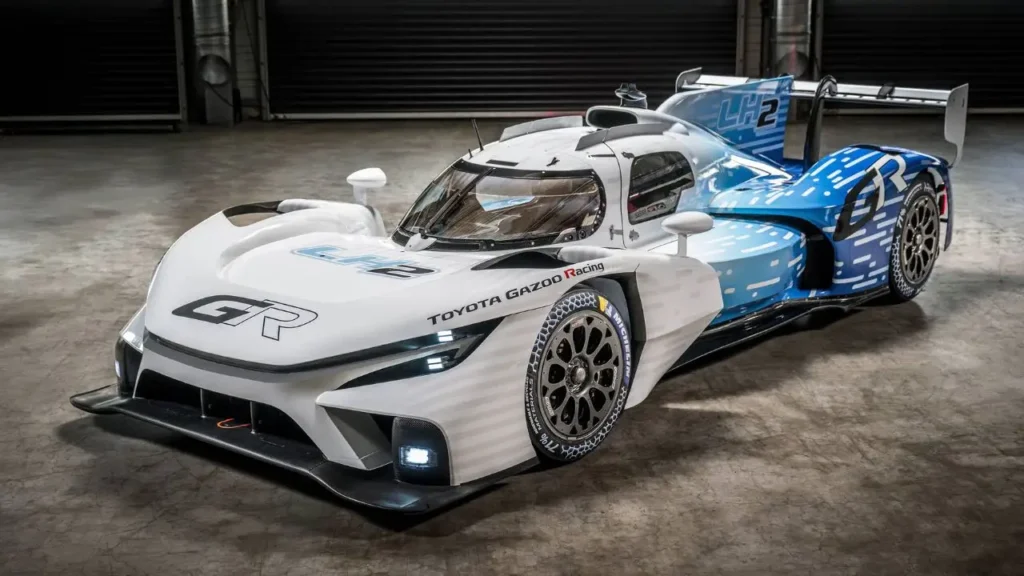
Toyota GR LH2 Racing Concept: A breakthrough liquid hydrogen hypercar at Le Mans. FIA hydrogen regulations, sustainable motorsport innovation & WEC hydrogen tech.
In the world of endurance racing, every second counts. But when it comes to saving the planet, Toyota is betting big on every drop of hydrogen. Just ahead of the iconic 2025 Le Mans 24 Hours, the Japanese automaker unveiled a sleek and futuristic beast — the Toyota GR LH2 Racing Concept. This isn’t just another hypercar; it’s a liquid hydrogen hypercar designed to shake up the World Endurance Championship (WEC) and redefine what it means to go fast sustainably.
This cutting-edge machine marks a significant moment in Toyota hydrogen racing — one that could change the motorsport world as we know it. So what makes this concept so special? And why is everyone from pitlane engineers to racing fans buzzing about it?
Let’s take a deep dive into the world of hydrogen combustion race cars, Le Mans dreams, and Toyota’s bold vision for sustainable motorsport innovation.
Table of Contents
| Sr# | Headings |
|---|---|
| 1 | What Is the Toyota GR LH2 Racing Concept? |
| 2 | Liquid Hydrogen Hypercar: A New Era Begins |
| 3 | Born From the GR010 Hybrid’s DNA |
| 4 | Developed by Toyota Gazoo Racing Europe |
| 5 | The Japanese Engineering Powerhouse Behind the Engine |
| 6 | Toyota’s Hydrogen Journey: From Corolla to Concept |
| 7 | Why Liquid Hydrogen Over Gaseous? |
| 8 | Le Mans 24 Hours Hydrogen Car: A Dream in Motion |
| 9 | FIA Hydrogen Regulations: Paving the Way |
| 10 | Hydrogen Combustion Race Car vs. Battery EVs |
| 11 | The Sustainability Edge in Motorsports |
| 12 | When Will It Race? The Big Question |
| 13 | What It Means for the World Endurance Championship Hydrogen Future |
| 14 | Challenges Toyota Must Overcome |
| 15 | What’s Next: The Road from Concept to Competition |
What Is the Toyota GR LH2 Racing Concept?
The Toyota GR LH2 Racing Concept is a hydrogen combustion race car based on the GR010 Hybrid that currently competes in the WEC. It’s not your typical prototype. Instead of relying on batteries or hybrid setups, it burns liquid hydrogen in an internal combustion engine—producing nearly zero emissions.
Imagine the muscle of a fire-breathing racecar, but with water vapor coming out the exhaust instead of harmful CO2. It’s like watching a dragon breathe clouds instead of smoke.
Liquid Hydrogen Hypercar: A New Era Begins
Toyota’s move from gaseous to liquid hydrogen isn’t just technical tinkering — it’s a monumental leap. Why? Because liquid hydrogen is denser, stores more energy in less space, and enables longer stints on the track without frequent refueling. For endurance racing, that’s pure gold.
And let’s be honest — a car that runs on liquid hydrogen sounds like it was pulled straight out of a sci-fi movie.
Born From the GR010 Hybrid’s DNA
This concept is heavily inspired by Toyota’s reigning GR010 Hybrid Hypercar. It shares design language, aerodynamic features, and performance philosophy. But under the hood, it’s a whole new beast — designed to run cleaner and smarter, without compromising speed.
The GR LH2 isn’t just a one-off showpiece — it’s an evolution of a proven platform reengineered for the hydrogen age.
Developed by Toyota Gazoo Racing Europe
Toyota didn’t cook up this creation in a vacuum. The GR LH2 Racing Concept was developed by Toyota Gazoo Racing Europe, based in Cologne, Germany. These are the same people who have helped Toyota dominate WEC in recent years.
Their mission? Marry high performance with environmental consciousness — and make it track-ready.
The Japanese Engineering Powerhouse Behind the Engine
While the car’s body and chassis took shape in Europe, the hydrogen combustion engine was developed at Toyota’s Higashi-Fuji Technical Centre in Japan. Although full engine specs haven’t been revealed yet, we know it’s designed specifically to burn liquid hydrogen — a much colder, more volatile fuel than its gaseous counterpart.
It’s like taming an icy lightning bolt and harnessing it for speed.
Toyota’s Hydrogen Journey: From Corolla to Concept
Toyota isn’t new to hydrogen. In fact, they’ve been racing hydrogen-powered Corollas in Japan’s Super Taikyu seriessince 2021. What started as an experimental project quickly evolved into a proving ground. By 2023, they had a second-gen GR Corolla H2 running on liquid hydrogen — paving the way for this Le Mans-ready concept.
Think of it as Toyota’s hydrogen ladder — step by step, race by race, climbing toward the future.
Why Liquid Hydrogen Over Gaseous?
Here’s a fun fact: Liquid hydrogen must be kept at -253°C. That’s colder than outer space! But it’s worth it. Compared to gaseous hydrogen, it offers more energy density and better packaging for race cars.
This allows for longer races, fewer pit stops, and better weight distribution — all critical in a grueling 24-hour endurance race.
Le Mans 24 Hours Hydrogen Car: A Dream in Motion
Back in 2023, Toyota teased fans with the GR H2 Racing Concept. But now, with the GR LH2, they’ve gone a step further. While it hasn’t officially entered Le Mans yet, all signs — from the FIA’s green light to Toyota’s aggressive R&D — suggest the dream is alive and well.
A hydrogen car at Le Mans could change the game forever, showing that clean energy and hardcore racing can coexist.
FIA Hydrogen Regulations: Paving the Way
The FIA World Motor Sport Council recently approved strict hydrogen regulations, covering everything from tank integrity to refueling protocols. With these rules in place, Toyota and others finally have a roadmap to bring their hydrogen dreams to life — safely and competitively.
No more guesswork. Just clear guidelines and open doors.
Hydrogen Combustion Race Car vs. Battery EVs
Why not go full-electric, you ask? Good question.
Battery EVs are clean, but in endurance racing, they face challenges: long charging times, battery weight, and limited range. Hydrogen combustion race cars, on the other hand, refuel like gasoline cars and offer the visceral thrill of engine noise and responsiveness — something fans and drivers crave.
The Sustainability Edge in Motorsports
With the world moving toward net-zero emissions, motorsports can’t be left behind. Toyota hydrogen racing is more than innovation — it’s a statement. A promise that speed and sustainability can go hand-in-hand.
Think of it as racing with a conscience.
When Will It Race? The Big Question
As of now, Toyota hasn’t confirmed a race debut. But with FIA approvals, track testing underway, and regulatory boxes ticked, it feels like it’s only a matter of time.
The Le Mans 24 Hours hydrogen car era could begin as early as 2025 or 2026 — and the GR LH2 might lead the charge.
What It Means for the World Endurance Championship Hydrogen Future
If the GR LH2 makes it to the WEC, it will set a powerful precedent. It could open doors for other manufacturers to invest in hydrogen tech, pushing the entire series toward a greener, cleaner future.
Just imagine a grid full of fierce, flame-spitting hydrogen machines. The future could sound amazing — and eco-friendly too.
Challenges Toyota Must Overcome
Of course, the road won’t be easy. Liquid hydrogen is difficult to store and transport. Trackside refueling infrastructure must evolve. And the engine’s reliability under race conditions is still untested.
But if there’s one automaker up to the task, it’s Toyota.
What’s Next: The Road from Concept to Competition
Toyota has made its move. Now all eyes are on how fast they can bring this concept to the track. With a blend of innovation, persistence, and passion, the GR LH2 could soon be writing a whole new chapter in motorsport history.
Conclusion
The Toyota GR LH2 Racing Concept isn’t just another prototype. It’s a bold declaration — that the future of racing doesn’t have to sacrifice excitement for sustainability. With the liquid hydrogen hypercar, Toyota Gazoo Racing Europe has sent a clear message to the world: clean energy is ready to compete at the highest level.
And as we gear up for the next Le Mans, we might just witness a revolution—powered by hydrogen, driven by dreams.
FAQs
1. What is the Toyota GR LH2 Racing Concept?
It’s a hydrogen-powered race car based on the GR010 Hybrid, developed to run on liquid hydrogen using a combustion engine.
2. Why did Toyota choose liquid hydrogen over gaseous hydrogen?
Liquid hydrogen is more energy-dense, allowing for better storage and longer race durations — crucial for endurance racing.
3. Will the GR LH2 Racing Concept race at Le Mans?
Not yet, but with FIA regulations now supporting hydrogen cars, Toyota could enter it in Le Mans in the near future.
4. How does a hydrogen combustion race car differ from an EV?
It uses hydrogen fuel burned in an engine instead of electricity stored in batteries, offering quicker refueling and a traditional engine feel.
5. Who developed the Toyota GR LH2 Racing Concept?
The car was developed by Toyota Gazoo Racing Europe in Germany, with its engine built at Toyota’s Higashi-Fuji Technical Centre in Japan.

